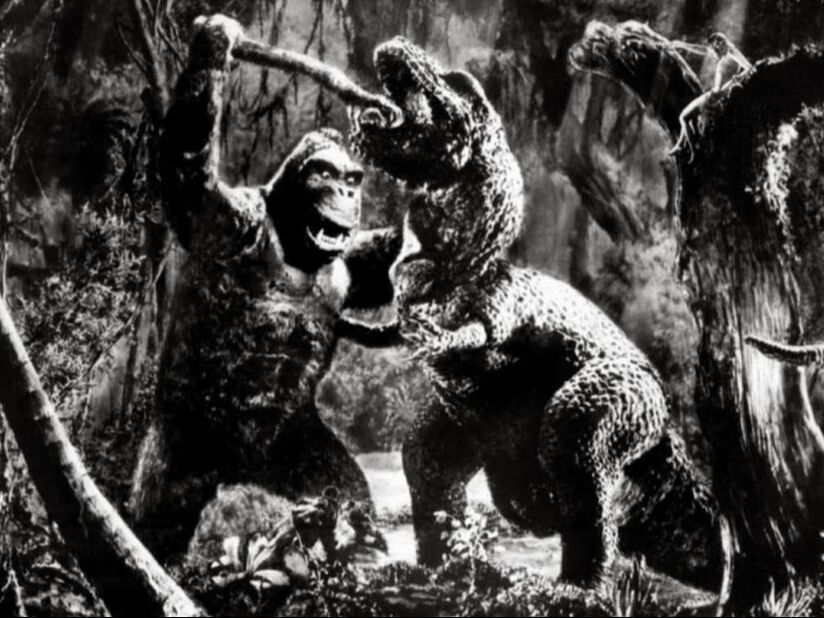|
A film director brings a crew to an uncharted island where
they encounter a colossal ape that kidnaps their leading lady. HORROR
|
King Kong (1933)Directed by Merian C. Cooper and Ernest B. Schoedsack
Written by James Ashmore Creelman and Ruth Rose Starring Fay Wray, Robert Armstrong, Bruce Cabot, Frank Reicher, Sam Hardy |
I'd argue that no film in history has had more influence on visual spectacle and practical special effects than 1933's King Kong. Nobody had ever seen anything like this before. Up to that point, the most insane thing audiences had seen on film was likely Frankenstein or The Invisible Man. But this was a fifty-foot gorilla that was actually interacting with the cast. It was game-changing, and perhaps even more unbelievable, it still holds up. The Kong scenes are still extraordinary, and they vastly outshine the human drama, but that's usually how these kinds of films work.
Carl Denham (Armstrong) has a dream. He wants to make a movie that will change the world. When he's given a map to the elusive Skull Island, he hires a film crew and a cast, then travels to the island, where they encounter the native people. This being a film from 1933, things do get uncomfortably racist at times, but thankfully we don't linger here very much as Kong shows up to kidnap leading lady Ann Darrow (Wray). As Denham and his lead actor Jack Driscoll (Cabot) try to save Ann, Kong battles all sorts of fearsome creatures to keep Ann safe, such as a tyrannosaurus, a pterodactyl, and a big ass snake. Ultimately, Denham gasses Kong and takes him back to New York, where he breaks free and climbs up the Empire State Building, leading to one of the most famous climaxes in movie history. The script, outside of the Kong stuff, is pretty bland and loaded with casual racism and sexism. But then we get to the monster scenes, and those are still stunning and impressive. This film is a testament to the strength and staying power of practical effects. When done right, they're timeless. Thousands of great movies owe everything to King Kong, the first cinematic kaiju. |
